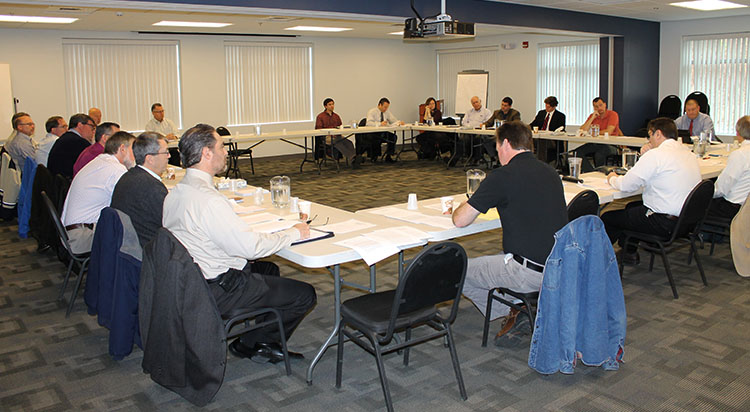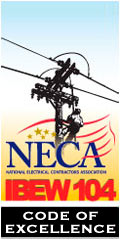
| Past Issues/Subscribe | Employment | neppa.org | Legislative Update | Advertise | December 2013 |

|
On November 12, the NEPPA Regional Power Supply Committee met at NEPPA’s Training Center. For those not in attendance, it was a very informative meeting and highlighted how fortunate NEPPA is to have such knowledgeable and dedicated volunteers. Thirty-five members participated either in person or via phone. Chairperson Steve Kaminski (New Hampshire Electric Coop) put together a strong agenda on NEPOOL/ISO issues.
 Brian Forshaw of CMEEC did an outstanding job of updating the attendees on:
Discussed in the meeting was the letter issued by ISO/New England on November 9, 2013. Still a relative newbie to the power industry, I have to acknowledge that as I get a better understanding on the market that was created, it is clearer and clearer that it violates most of the basic rules for market construction.
It doesn't appear that ISO started out with many of its defects. In my opinion, the original market construct was based on flawed and oversimplified theory. But, like many bureaucratic designs, it is too difficult for the creators and managers to acknowledge a bad premise. So what happens? They acquiesce to demands of those attempting to gain on the market and then begin tinkering to try and make the model viable.
After years of maneuvering the forward capacity market, the spot market and all of the other components that comprise the New England energy market, the only thing that has been accomplished is a dramatic difference in the have and have not’s. Public power is one of the have not’s in this scenario.
In September, a delegation from NEPPA went down to Washington, D.C., and when meeting with legislative staff we suggested that a "holistic approach" be used to overhaul ISO New England. It is impractical to expect FERC to accept that ISO New England should be dissolved and an unadulterated market model put in place. But, if the existing model is going to survive and not drain the consumers of New England, a market analysis from outside experts should be conducted and changes implemented to restore a natural market.
The one comment that sticks with me is one made by an ISO New England staffer at at of their programs. When asked why the market allows the speculators, it was stated that "the market isn't’t viable without them." Shouldn't a market at its base be functional prior to allowing speculators to enter?
Feel free to enlighten me, if I have oversimplified the issue.
In January, be on the lookout for the announcement about NEPPA’s new website. Also, NEPPA will be experimenting with distance learning in 2014 and hopes to simulcast some of our in-person training to members in remote locations. Please let me or members of the Education and Training Committee know if you have any suggestions for programs that should allow for remote access.
I wish you happy and safe holidays on behalf of the NEPPA leaders and staff.
|



